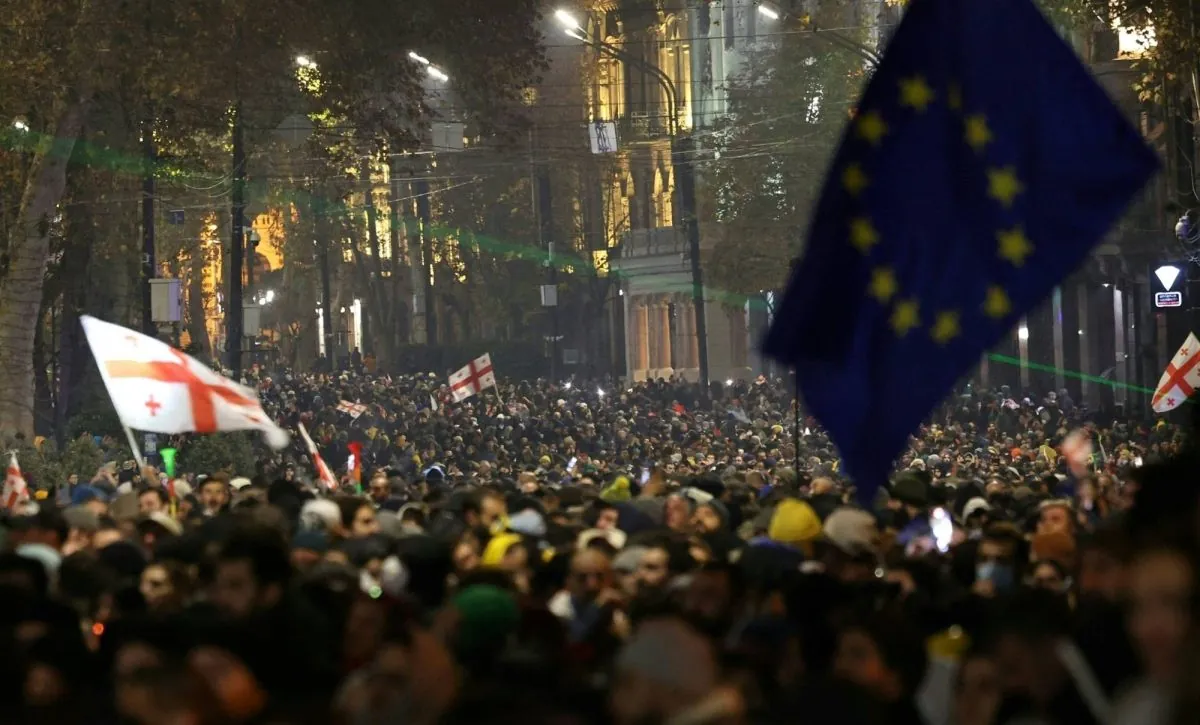Georgia's political storm: How EU dreams turned into street protests
Georgiaʼs ruling party halted its EU membership process causing nationwide protests. Government institutions show cracks as president **Salome Zourabichvili** leads opposition against controversial parliament decisions

Georgiaʼs path to EU membership hit a wall when the ruling party made a sudden u-turn this autumn. After disputed oct-2024 elections‚ Prime Minister Irakli Kobakhidze declared a 4-year pause in EU accession talks (which started roughly 2 years ago)
The announcement triggered mass-scale demonstrations spreading from tbilisi to remote villages. Governmentʼs harsh response included tear-gas water-cannons and police force to stop protestors. Similar to events that happened in ukraine about 10 years ago when it faced a choice between EU and Russia; these protests show Georgian peoples strong pro-european position
Bidzina Ivanishvili – countrys richest person and ruling partys founder stands behind this decision. Despite his partys pre-election promises to support EU integration‚ they changed course after European Parliament declared october elections results as invalid. The governments actions remind of belarus situation from 4 years ago: using force against its own citizens
Civil servants started showing disagreement with governments choices:
- Defense ministry workers
- Foreign affairs staff
- Education department employees
- Justice ministry personnel
Several diplomats including US ambassador quit their jobs. President Salome Zourabichvili refused to accept new parliament – making its decisions illegal; and created special council to prepare new elections
The US already stopped its partnership with georgia; but experts say more international help is needed. Security forces actions might decide this crisis outcome – some officers already dont follow orders to use force against protesters. Military stays quiet which might mean they support the president
Western countries need to act fast: declare elections invalid impose sanctions on Ivanishvili and support Zourabichvili. This situation affects not just georgia but whole region as russia tries to influence nearby countries through various means (elections gas prices political pressure)





























